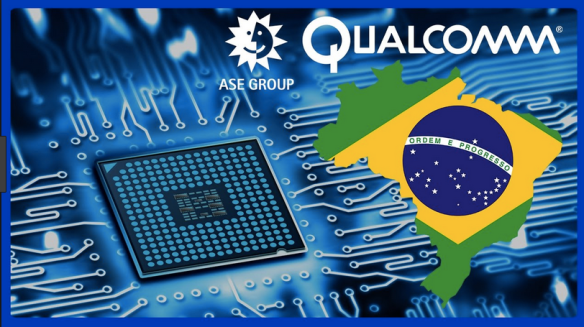Brazil's Semiconductor Ambitions - Can it Become a Global Chip Player?

As the world grapples with a persistent semiconductor shortage, countries around the globe are looking to bolster their domestic chip production capabilities. Brazil, Latin America's largest economy, is no exception. While not traditionally a major player in the semiconductor industry, Brazil is taking steps to establish itself in this increasingly strategic sector. But can it overcome existing hurdles and become a significant force in the global chip market?
A History Steeped in Potential
Brazil's history with semiconductors isn't entirely new. In the 1980s, the country made strides in developing its own chip fabrication capabilities. However, economic instability and a lack of sustained government support hampered progress, leading to a decline in the 1990s.
Despite this setback, Brazil retained a foundation in chip design, particularly in areas like analog and power electronics. The country is home to a growing pool of skilled engineers and boasts renowned research institutions like the University of São Paulo and the National Institute for Space Research (INPE), which have expertise relevant to semiconductor development.
Renewed Focus and Government Initiatives
The recent global chip shortage, which exposed vulnerabilities in supply chains and highlighted the strategic importance of semiconductors, served as a wake-up call for many nations, including Brazil. The Brazilian government recognized the need to reduce dependence on foreign suppliers and to capitalize on the growing demand for chips.
In 2021, the Brazilian government announced a series of initiatives aimed at revitalizing its semiconductor industry. These measures include:
- Tax incentives and subsidies: Brazil introduced tax breaks and financial assistance programs to attract both domestic and foreign investment in chip manufacturing, design, and research.
- PADIS++ Program: An updated version of the country's semiconductor policy, PADIS++, aims to foster a more competitive and innovative chip ecosystem.
- Partnerships and collaborations: The Brazilian government is actively seeking partnerships with leading semiconductor companies and research institutions globally to acquire technology, expertise, and investment.
Opportunities and Challenges
Brazil faces both opportunities and challenges in its quest to become a semiconductor powerhouse.
Opportunities:
- Growing domestic market: As a large and rapidly developing economy, Brazil boasts a substantial and expanding domestic market for electronics. This presents a significant opportunity for local chip producers to cater to the demands of various sectors, from consumer electronics and automotive to telecommunications and industrial automation.
- Abundant resources: Brazil possesses an abundance of natural resources essential for semiconductor manufacturing, including silicon, which is a key material in chip production.
- Skilled workforce: With a strong foundation in engineering and a growing pool of skilled technicians, Brazil has the potential to develop a skilled workforce capable of supporting a thriving semiconductor industry.
Challenges:
- High investment costs: Setting up advanced semiconductor fabrication facilities requires immense capital investment, a significant barrier to entry for any aspiring chip-producing nation.
- Technological gap: Brazil currently lags behind leading semiconductor-producing countries in terms of technological advancement. Bridging this gap will require sustained investment in research and development, as well as technology transfer through partnerships with established players.
- Bureaucracy and infrastructure: Bureaucratic hurdles and inadequate infrastructure, including reliable power supply and logistics networks, remain persistent challenges that could hinder the growth of the industry.
A Long Road Ahead
Brazil's ambitions in the semiconductor industry represent a long-term strategic goal. While the country has laid out a roadmap for growth, it's crucial to acknowledge that becoming a significant player in the global chip market will require sustained commitment, significant investment, and a focused approach to addressing the challenges ahead.
The success of Brazil's semiconductor push will depend on several factors, including the effectiveness of government policies, the ability to attract foreign investment and technological expertise, and the commitment to nurturing a skilled workforce. While the path forward is not without obstacles, Brazil's renewed focus on semiconductors holds the potential to reshape its economic landscape and position the country as a key player in this increasingly strategic industry.


















Comments ()